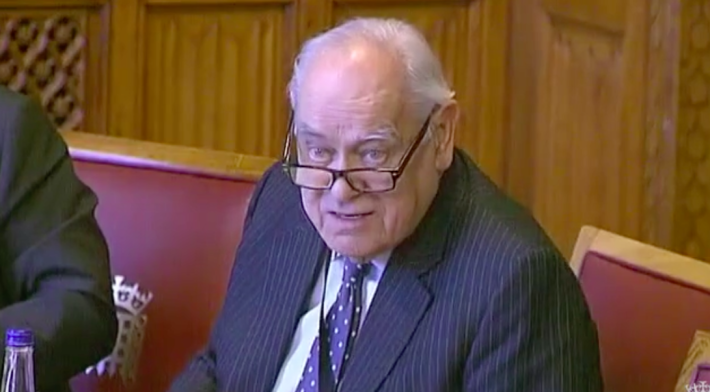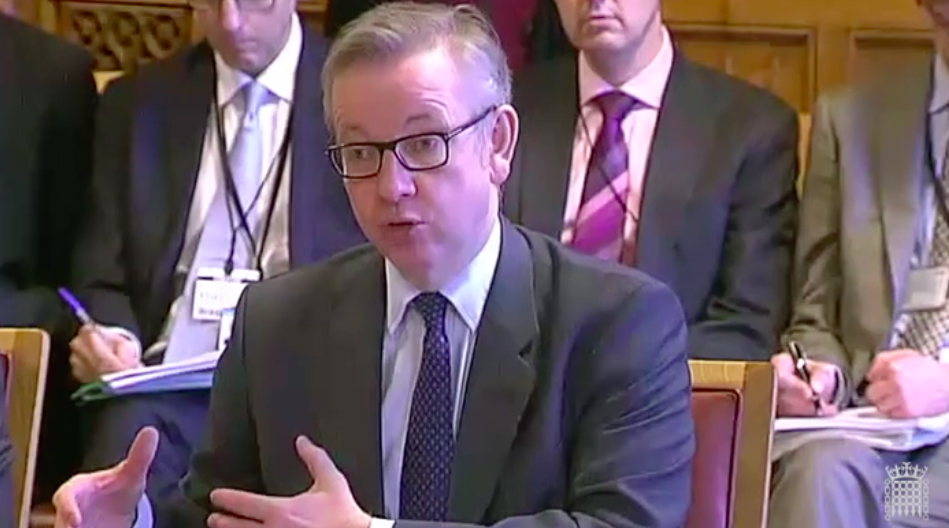This week, Justice Secretary Michael Gove gave some more information about the government’s long-awaited (and much delayed) plan to repeal the Human Rights Act and replace it with a British Bill of Rights. He was giving evidence to a Parliamentary Committee on EU justice with his junior minister Dominic Raab.
He said that there were ‘no plans’ for Britain to leave the European Convention of Human Rights (ECHR). He also insisted that reforms would be minimal and spoke about prioritising the right to free speech over privacy.
There’s been a lot of talk about the British Bill of Rights over the last couple of years. We thought it would be good to stop and figure out where this latest revelation leaves us.
So, what were the original proposals for a British Bill of Rights?
In October 2014, the Conservatives said that a British Bill of Rights would include the rights contained in the European Convention (so the same ones that are in the Human Rights Act) but also “restore common sense”.
By this they meant putting tighter restrictions on the rights of various people, including foreigners who commit serious crimes in the UK, illegal immigrants claiming the right to family life and those claiming against the British Armed Forces for things that happened abroad.
Crucially, they promised to “break the formal link” between Britain and the European Court of Human Rights in Strasbourg. Serious consideration was given to leaving the European Convention on Human Rights completely. These were radical proposals.
What did people think of those proposals?

Dominic Grieve. Probably.
There was some support for the proposals. But it was not universal. Tory MP Dominic Grieve, who was sacked as Conservative Attorney General Attorney General due to his opposition to the plans, described them as ‘devastating’. There was also opposition from the Scottish and Welsh governments.
What happened since then?
The Grayling plan has drifted off, somewhat. The Conservative election manifesto was more vague (human rights only made it to page 60). And contrary to what the Grayling proposal promised, we haven’t seen any draft legislation yet. The 2014 proposals said a draft bill of rights would be published “shortly”. It didn’t appear. After the 2015 election, the government appeared to promise the change would happen in the first 100 days. After opposition from Tory backbenchers and the devolved nations, it didn’t. On Tuesday, Michael Gove said he was hoping to consult on legislation “soon”.
And then, a few weeks ago, Mr Gove let slip that the process had become entangled with the debate over whether the UK should leave the European Union, with the Bill of Rights potentially turning the Supreme Court into a “constitutional court” which could overrule EU laws – see more on that from Prof. Mark Elliott.
So, what did Mr. Gove tell us?
There are no plans to leave the European Convention on Human Rights. Not a new announcement, but nonetheless an important confirmation.
Existing European Convention rights will be affirmed’ as ‘British’ rights. At the moment the government envisages “all” the convention rights to be “affirmed in any British bill of rights”. We don’t know what that means yet.
Gove touched upon the “bad name” human rights laws have in the UK, saying they are “seen as something done to British people as a result of foreign intervention” and that “part of the purpose of the British bill of rights is to affirm that things like a ban on torture or the right to a fair trial are fundamental British rights.”
A British Bill of Rights will not “derogate [move away from] absolutely from any of the [ECHR] rights” but would seek to change the emphasis of some of them. Little detail was given, but Gove said he wanted to:
- Stop the actions of serving soldiers being subject to human rights challenges, hinting at a French style derogation in the light of the Paris attacks. This feeds into concern from the media about cases being brought against soldiers – but don’t forget, the Human Rights Act protects soldiers too!
- Emphasise free speech over privacy laws and do more to protect journalist’s sources. This remains unclear, especially as the ECHR protects journalistic sources already.
Where does that leave us?

Lord Richards
Lord Richard questioned “what on earth” Mr Gove planned to repeal the Human Rights Act for, if the changes are so minor. The Government will also run into trouble with the devolved nations over this. Is it worth it?
It was interesting to see how much Mr Gove is motivated by clearing up the apparent “bad name” that human rights have. It is debatable whether a British Bill of Rights is the best way to do this, as Helena Kennedy QC and Philippe Sands QC argued back in 2013 after they took part in the Commission on a Bill of Rights.
Ultimately, until we see the draft bill, we just don’t know what’s going to be in it.
Only the legislation itself will show us if it would simply make the rules more sensible and clear, or if it will reduce human rights protections.
But one thing we can be sure of: RightsInfo will keep you posted.







